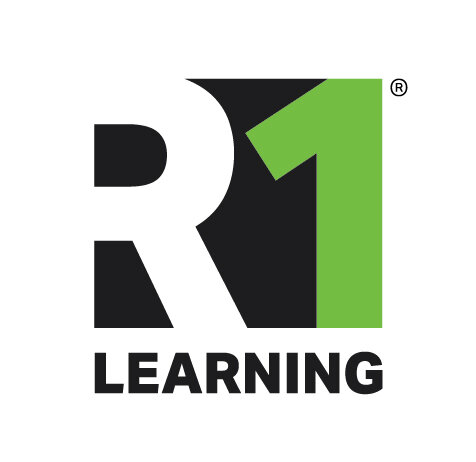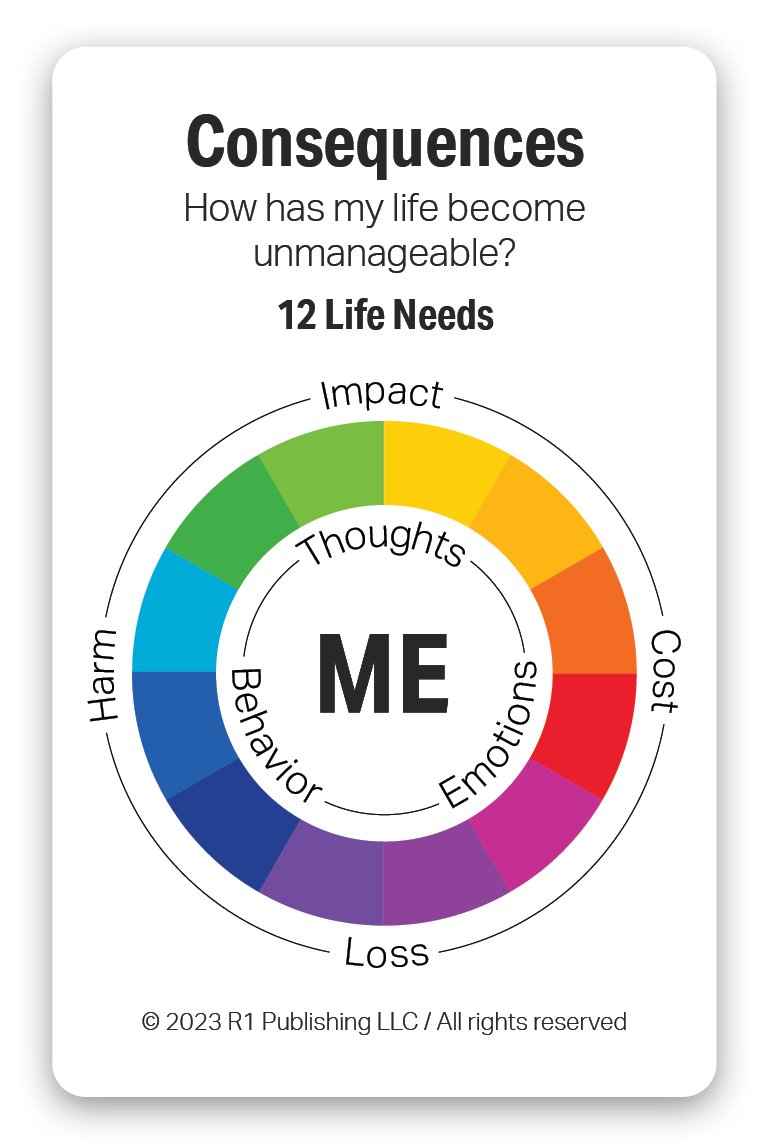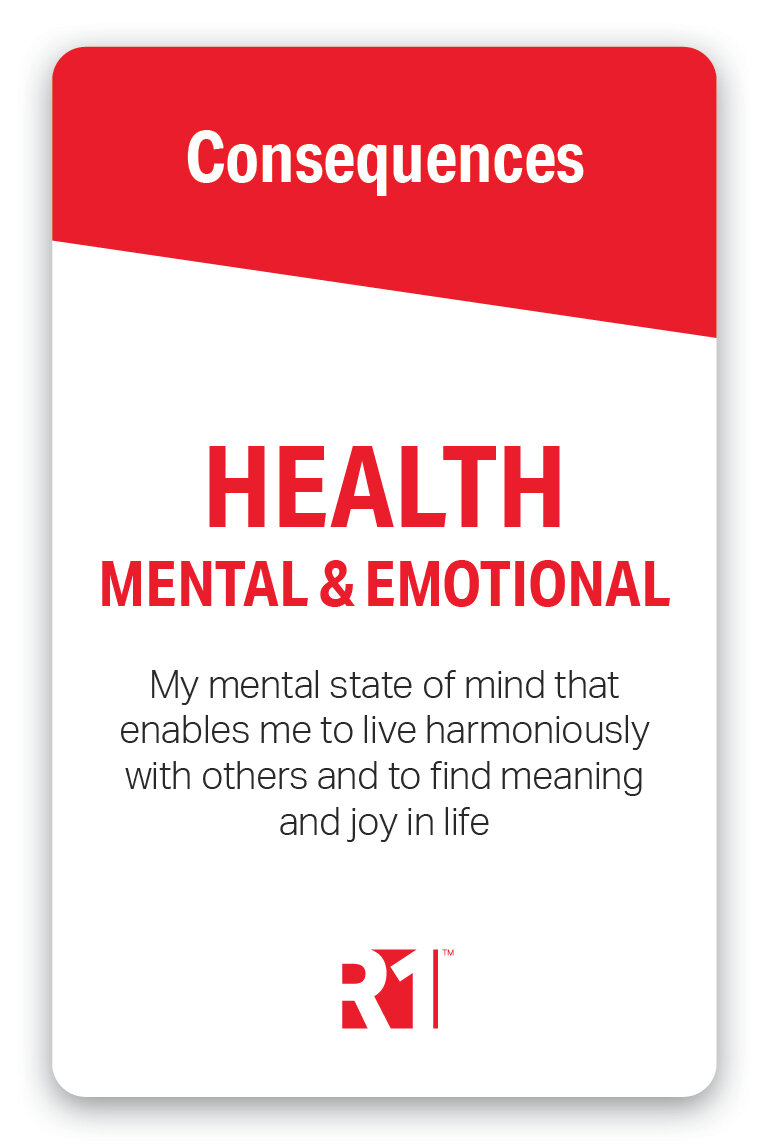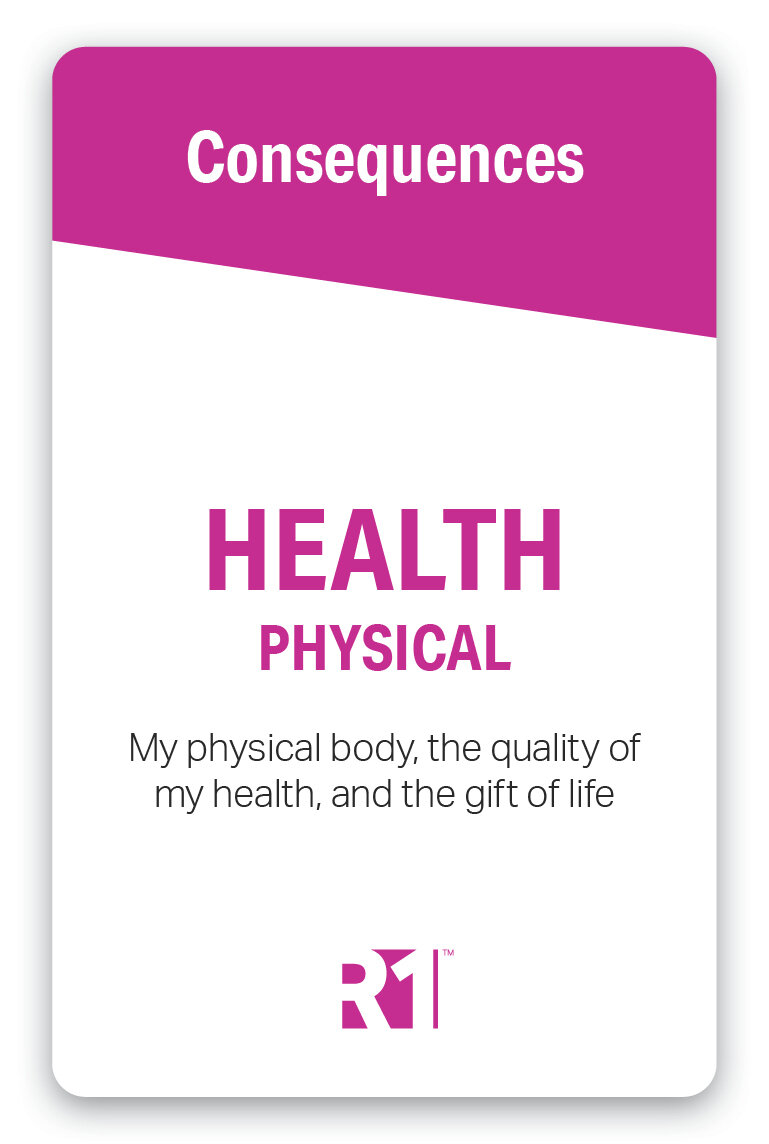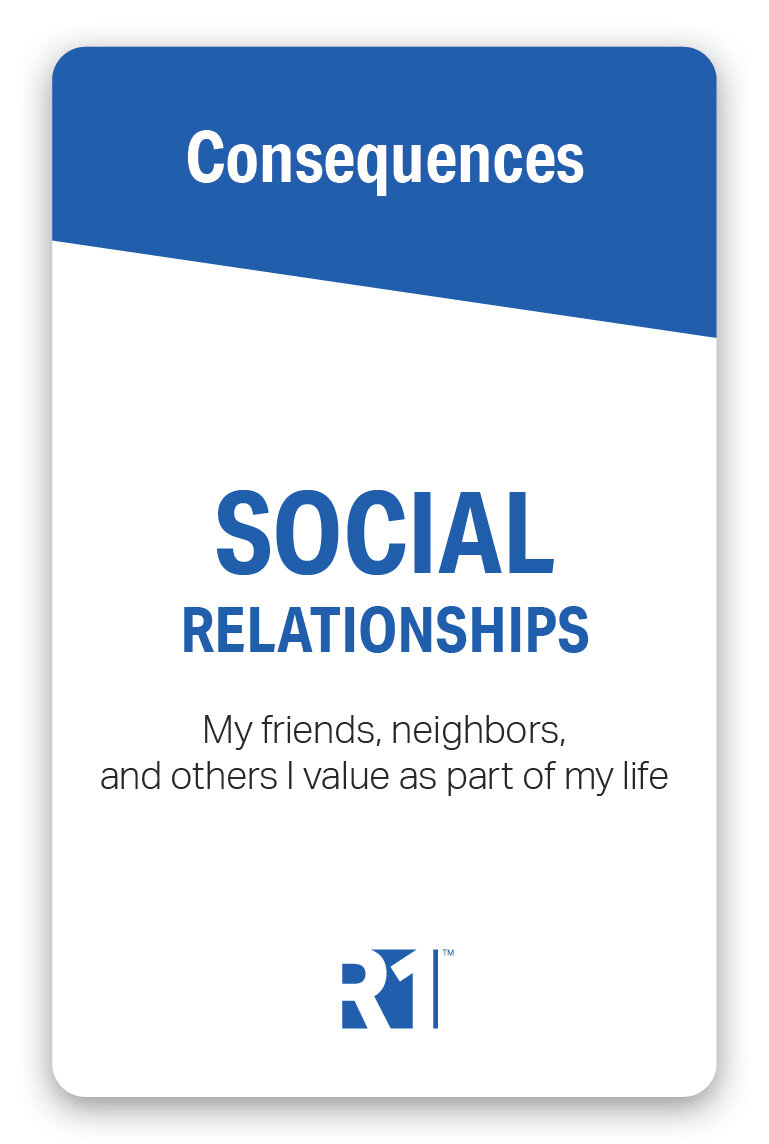99 Not Yets — How Can Substance Use Consequences Help Break Contemplative Mindsets?
The Consequences of High-Risk Behavior (addiction, substance use, and other harmful behaviors) is staggering. For example, hundreds of thousands of people die each year from the use of drugs and alcohol. Millions more are affected. Families and communities are ravaged. The cost to businesses is immense with increased sick leave, tardiness, injuries, and loss of productivity. Use of substances has become an international crisis affecting all facets of our society. Other addictions such as eating disorders, spending, internet use, work, sex, and gambling impact individuals, families, and society as well. Most of us know someone — a family member, a friend, a co-worker — whose life has been negatively impacted by the compulsive and destructive nature of addiction.
For individuals, behavioral change can be a difficult journey when struggling with addiction. Drs. James Prochaska and Carlo DiClemente’s Stages of Change Model outlines an individual’s progression through five stages — Precontemplation, Contemplation, Preparations, Action, and Maintenance — as one experiences the consequences and benefits of change. As one progresses through the stages, the pros start to exceed the cons, tipping the scale toward positive change. The first step of any 12 Step program is assessing and accepting the unmanageability of one’s life as a result of addictive and unhealthy behavior. Behavioral health’s Jellinek Curve includes “assistance with personal stocktaking” as an action item in the Rehabilitation Phase. No matter which theory or model of addiction is applied, one of the first steps toward healthier behavior is the self-obervation of consequences (including the risk of future consequences or “not yets”) and the breaking of one’s precontemplative or contemplative mindset.
The barriers for self-discovery and the evaluation of consequences are deeply rooted. Addiction goes hand in hand with compulsive behavior, loss of control, and physiological and mental factors that impede self-awareness and insight. Defense mechanisms — denial, rationalization, minimization, and others — enable individuals to distort reality and protect addictive behavior. By not seeing their consequences at all or seeing them as isolated events, individuals underestimate the impact of their unhealthy behavior on their lives. Taking a strengths-based approach is at the core of building one’s Recovery Capital. However, there is value to assist individuals to reflect on and observe the challenges created by their addictive behavior so they can proactively address them, set goals, and build healthy coping strategies as part of the recovery process.
7 Uses for Consequences of Addiction
How does the R1 Life Needs Model help? The R1 Learning System is designed to help individuals learn to observe, evaluate, and choose new responses to unhealthy patterns of behavior. Taking stock of the consequences (and the “not yets”) that have resulted from one’s addictive behaviors and understanding their impact on one’s life, and the lives of others, is an important step whether using behavioral health’s Jellinek Curve or 12 Step Programs. Conducting an honest self assessment of the consequences of addiction in this broader context and assessing the impact, cost, loss, and harm provides a more urgent and meaningful motivation for change. Such an assessment often leads to increased openness, willingness, and motivation to ask for help from others, seek out resources, and take action toward change. Seven uses for rigorous consequences assessments include:
Provide concrete examples of consequences to impede the distortion of reality and use of defense mechanisms
Break precontemplative or contemplative mindsets
Self-identify and accept life’s problems resulting from substance use or other addictive behaviors
Identify life needs and challenges to prioritize and address
Set goals for top priority life issues, barriers, or unmet needs
Identify coping skills to help regulate emotions and feelings resulting from the loss, cost, harm, or impact of consequences
Use same Life Needs Model and process to evaluate and celebrate progress in each life area over time
Seeing The Impact of Substance Use on Broader Life Needs
Consequences are rarely an isolated event — they are just the opposite. Progressing over time, and increasing in frequency, duration, and intensity, the destructive nature of addiction has the potential to have a broad and serious impact on all basic life needs — health, family, financial stability, housing, social relationships, and career aspirations, to name a few. The R1 Life Needs Model has been adapted from the Hierarchy of Needs theory originally developed by Dr. Abraham Maslow, who highlighted the importance of satisfying our basic life needs in a step-by-step progression toward building self-esteem and living a meaningful life. The R1 12 LIfe Needs were also influenced by the work of Dr. Caela Farren and her World of Work model presented in her book, Who’s Running Your Career? If you are familiar with the 8 Dimensions of Wellness, you’ll see a correlation here too. The R1 model lines up with all of them but offers a few additions that help individuals relate to their own unique situations and circumstances.
Consequences Defined
High-Risk Behaviors Defined
The 12 Life Needs/ Impact Areas Defined
12 Life Needs Model has been adapted from the work of Abraham Harold Maslow and Dr. Caela Farren’s World of Work model from her book, Who’s Running Your Career?
Consequences: The results or effects produced by one's actions or behavior. With addictive behavior, consequences are typically negative, costly, harmful, and potentially life-threatening.
Not Yets: Consequences or regrets that have not yet happened but that are likely to happen if changes are not made.
The R1 Consequences of High-Risk Behavior Discovery Cards deck provides a list of concrete, categorized, and color-coded examples for each Life Needs category. R1 Learning has adopted this model in its basic form so practitioners, educators, individuals, and family members can use it for a variety of applications. Below is a list of the twelve (12) Life Needs categories with examples of specific consequences for each. The thirty-six (36) bulleted examples below are a subset of the ninety-nine (99) consequences listed in the Discovery Cards deck and Facilitator Guide. Use the list below for yourself or with individuals you are working with and then answer the Questions to Explore below.
Community: My relationship with the social world around me. Discovery Cards examples inlcude:
Banned from malls, stores, restaurants, or bars
Excluded from community groups or activities
Not welcome at neighborhood gatherings
Family: The people in my life I am related to, I care about, and/or who care about me. Discovery Cards examples include:
Excluded from family events
Hurt my family
Not there for family members when they needed me
Financial Stability: My ability to financially provide for myself and others for whom I am responsible. Discovery Cards examples include:
Didn't pay bills or routinely paid bills late - late fees or interest charged; phone service or utilities cut off; credit score impacted
Lost my savings
Lost wages, income, or bonuses
Health — Mental & Emotional: My mental state of mind that enables me to live harmoniously with others and to find meaning and joy in life. Discovery Cards examples include:
Attempted self-harm or suicide
Experienced extreme shame, guilt, or remorse
Lost my self-esteem and/or self-respect; full of self-pity
Health — Physical: My physical body, the quality of my health, and the gift of life. Discovery Cards examples include:
Developed heart, lung, kidney, liver, or pancreas problems
Had a stroke
Hurt seriously by accident, fall, or other significant incident
Home/Shelter: The place where I live and sleep, feel safe, and enjoy the company of others. Discovery Cards examples include:
Became homeless
Kicked out of my home
Lived out of my car (or other vehicle)
Learning/School: My ability to grow and advance through learning. Discovery Cards examples include:
Dropped out of school
Kicked out of or suspended from school
Lost my scholarship or tuition assistance
Leisure/Fun: My ability to enjoy free time and have fun in areas that interest me. Discovery Cards examples include:
Ruined or skipped vacations
Slept away my free time
Stopped participating in activities of interest
Social Relationships: My friends, neighbors, and others I value as part of my life. Discovery Cards examples include:
Avoided by friends; excluded from social gatherings and other activities
Lost or strained my close friendships or other important relationships
Lost the trust and/or respect of friends
Society/Legal: My adherence to society’s rules that keeps me, others, and our environment safe . Discovery Cards examples include:
Arrested; charged with a crime
Charged with first DUI
Lost my driving privileges or faced with restrictions on my driver's license
Spirituality: My connection to religion, nature, or a "higher power" that gives meaning to my life. Discovery Cards examples include:
Abandoned my religion
Compromised my moral values
Felt spiritually bankrupt
Work/Career: My service to society and ability to obtain financial stability for myself and those I am responsible for. Discovery Cards examples include:
Confronted by employer about alcohol or drug use; at risk of losing my job
Lost my job – got fired or asked to leave
Received poor work performance evaluation
Questions to Explore
Answer these questions for yourself or someone you are working with.
How did the Life Needs Model help you in thinking about and identifying consequences and their impact?
Which Life Needs were most prominent in your list? Does this make sense?
How many different Life Needs were impacted? Does the number surprise you? Insights?
As you look back over relevant drinking or using history, do you see the cost, loss, harm, and impact of your behavior?
Which specific Life Needs categories and challenges do you think will be most important to address first?
What coping skills will be most helpful to employ while addressing these consequences?
Who can you ask for help and support?
Thank you for reading this post and participating in this activity. Contact us if you would like to learn more about Values or the R1 Learning System. We look forward to hearing from you.
References
DiClemente CC. Addiction and Change. New York, Guilford Press, 2020.
Maslow AH. Motivation and Personality (3rd Edition). Delhi, India, Pearson Education, 1987.
Maslow AH. “A Theory of Human Motivation.” Psychological Review 50(4)370–396, 1943.
Prochaska JO, DiClemente CC. “Stages and Processes of Self-Change of Smoking: Toward an Integrative Model of Change.” Journal of Consulting and Clinical Psychology 51:390–395, 1983.
Copyright 2023 R1 Publishing LLC / All Rights Reserved. Use of this article for any purpose is prohibited without permission.
Engage and Retain Clients. Train and Retain Your Team.
The R1 Learning System and the Discovery Cards provide a unique opportunity to empower individuals to observe, evaluate, and build new responses and coping strategies for addressing the consequences of their addictive and unhealthy behavior The Consequences of High-Risk Behavior Discovery Cards and Group Kits allow individuals to build their own vocabulary, think about these concepts concretely, and put their choices into action. Visit the R1 Store to learn more about a variety of topics. The Discovery Cards are an amazing tool for exploring these topics with individuals or groups.
Here are a few ideas to help you learn more about R1 and engage others on this topic:
Share this blog post with others. (Thank you!)
Start a conversation with your team. Bring this information to your next team meeting or share it with your supervisor. Change starts in conversations. Good luck! Let us know how it goes.
Visit www.R1LEARNING.com to learn more about R1, the Discovery Cards, and how we’re creating engaging learning experiences through self-discovery.
